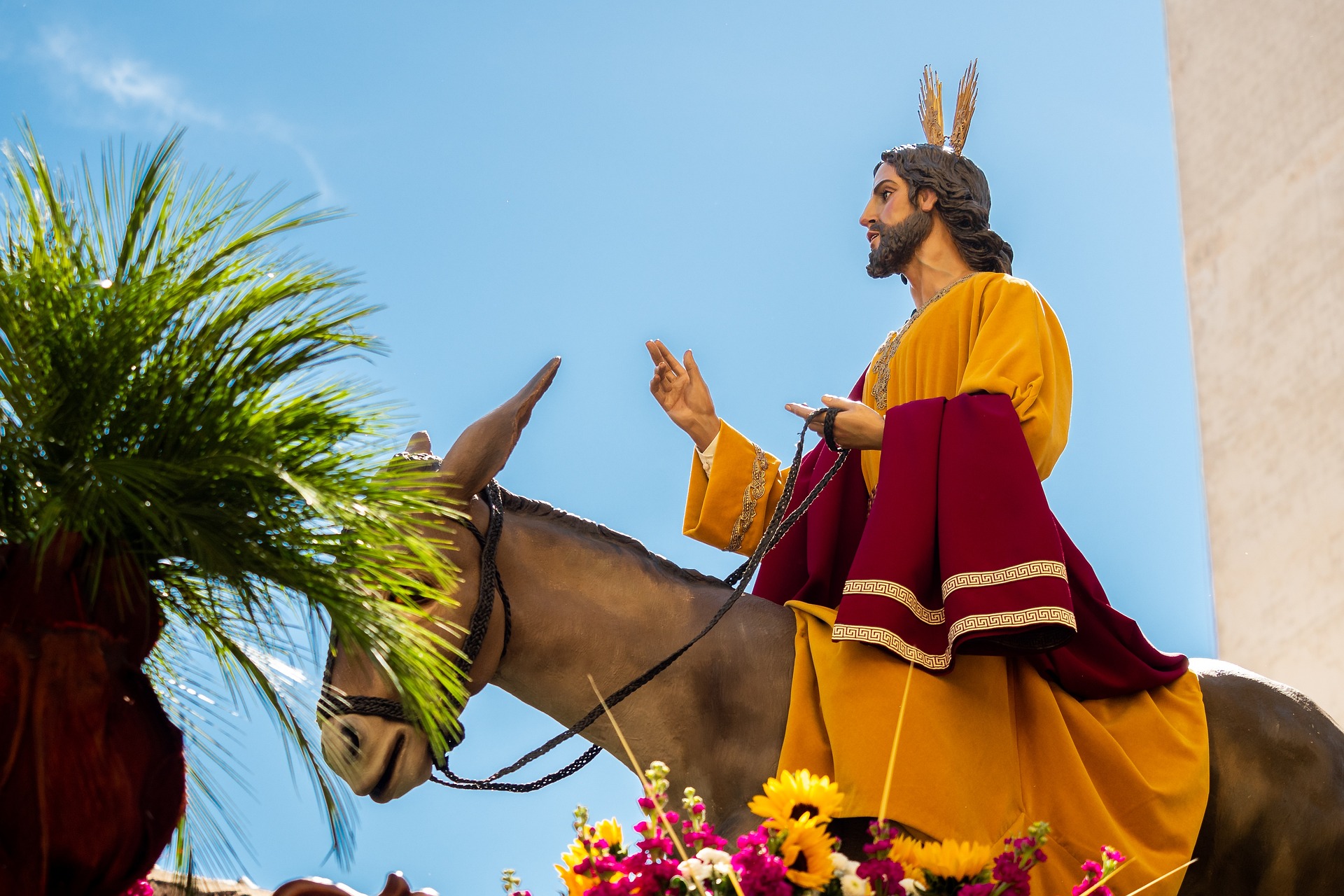Palm Sunday holds deep spiritual meaning for Christians. It signifies several important messages derived from the biblical account of Jesus’ triumphal entry into Jerusalem. Let’s explore these messages in more detail, supported by relevant Bible verses, and conclude with an invitation for sinners to accept Jesus.
1. Peace
Christ rode on a donkey, symbolising peace. In the Old Testament, the arrival of a king on a donkey was associated with peace and humility. Jesus deliberately chose to ride on a donkey to fulfil the prophecy found in Zechariah 9:9, which says, “Rejoice greatly, O daughter of Zion! Shout aloud, O daughter of Jerusalem! Behold, your king is coming to you; righteous and having salvation is he, humble and mounted on a donkey, on a colt, the foal of a donkey.” By riding on a donkey, Jesus demonstrated His mission to bring peace to humanity through His redemptive work.
2. Humility
Despite being coequal with God, Jesus humbled Himself by riding on a donkey. This act of humility is emphasised in Philippians 2:5-8, which states, “Have this mind among yourselves, which is yours in Christ Jesus, who, though he was in the form of God, did not count equality with God a thing to be grasped, but emptied himself, by taking the form of a servant, being born in the likeness of men. And being found in human form, he humbled himself by becoming obedient to the point of death, even death on a cross.” Jesus’ humble entry into Jerusalem serves as a powerful example for Christians to cultivate humility in their lives.
3. Submission to the will of God
Palm Sunday also highlights Jesus’ submission to the will of God the Father. In the Garden of Gethsemane, Jesus prayed, “Father, if you are willing, remove this cup from me. Nevertheless, not my will, but yours, be done” (Luke 22:42). Jesus willingly embraced His mission to offer Himself as a sacrifice for the salvation of humanity. Through His obedience and submission, He exemplified the importance of surrendering to God’s will in our lives.
4. Service to Men
As Jesus entered Jerusalem, the people welcomed Him with palm branches and shouts of praise. This symbolizes the recognition of Jesus as a servant-king who came to serve humanity. In Mark 10:45, Jesus Himself said, “For even the Son of Man came not to be served but to serve, and to give his life as a ransom for many.” Christians are called to follow Jesus’ example of selfless service and love towards others, reflecting His servant-hearted nature.
5. Willingness to Sacrifice Himself
Palm Sunday sets the stage for the ultimate sacrifice of Jesus on the cross. Jesus willingly embarked on the path of suffering and sacrifice to redeem humanity from sin and reconcile them to God. In John 12:23-24, Jesus speaks of His impending crucifixion, saying, “The hour has come for the Son of Man to be glorified. Truly, truly, I say to you, unless a grain of wheat falls into the earth and dies, it remains alone; but if it dies, it bears much fruit.” Jesus’ willingness to sacrifice Himself demonstrates His immense love for humanity and His desire to offer salvation to all who believe in Him.
In conclusion, Palm Sunday carries profound significance for Christians. It reminds us of Jesus’ mission to bring peace, His humility, His submission to God’s will, His call to serve others, and His ultimate sacrifice on the cross. As believers, we are encouraged to emulate these virtues in our lives, following Jesus’ example.
To those who have not yet accepted Jesus as their Lord and Savior, I invite you to consider the profound meaning of Palm Sunday. Jesus’ entry into Jerusalem marked the beginning of His journey towards the cross, where He paid the price for our sins. Through faith in Jesus, we can experience forgiveness, eternal life, and a restored relationship with God. May you open your heart to Jesus, repent of your sins, and accept Him as your personal Savior. He is ready to receive you with open arms and transform your life with His love and grace.



